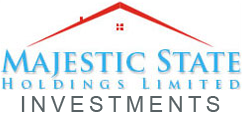School science projects have long been a staple of science education, providing students using opportunities to engage in hands-on studying, explore scientific concepts, in addition to develop inquiry skills. These kinds of projects come in various varieties, ranging from simple experiments performed in the classroom to more complex research endeavors undertaken in science fairs or challenges. While the benefits of engaging students in hands-on activities usually are widely acknowledged, assessing the effect of school science projects on student learning and technological inquiry skills requires consideration of various factors.
One important aspect of assessing the impact of school science projects is comprehension their alignment with academic objectives and standards. Scientific research projects should not be viewed as miniscule extracurricular activities but rather since integral components of the subjects designed to reinforce concepts coached in the classroom and promote medical literacy. Therefore , it is essential to appraise the extent to which projects arrange with curriculum standards, learning goals, and disciplinary primary ideas.
Moreover, the design in addition to implementation of science jobs play a crucial role inside determining their impact on scholar learning. Well-designed projects need to incorporate elements of inquiry-based understanding, critical thinking, and problem-solving, allowing students to definitely explore scientific phenomena and formulate hypotheses. Additionally , plans should be scaffolded to support college students at different skill levels and provide opportunities for reflection in addition to revision. By adopting some sort of constructivist approach to learning, scientific disciplines projects can effectively boost students’ understanding of scientific concepts and foster the development of query skills.
Assessment strategies employed to evaluate the impact of look at this now school science projects should be multifaceted along with comprehensive, encompassing both conformative and summative measures. Conformative assessment techniques, such as composition, student reflections, and expert evaluations, provide valuable information into students’ engagement, knowing, and progress throughout the project. Summative assessments, including rubrics, quizzes, presentations, and task reports, offer a means of analyzing students’ mastery of information knowledge and their ability to employ scientific methods.
Furthermore, it is essential to consider the contextual factors that will influence the effectiveness of school research projects. These factors have the availability of resources, support through teachers and mentors, use of technology and equipment, and the socio-cultural backgrounds of pupils. Schools with limited solutions or inadequate support programs may face challenges inside implementing high-quality science projects and ensuring equitable contribution among all students. Therefore , efforts to assess the impact of school scientific research projects should take into account the actual contextual constraints and options present in different educational options.
In addition to assessing the immediate effect of science projects upon student learning, it is also essential to consider their long-term results. Research suggests that participation within science projects can have enduring benefits beyond the class, including increased interest in scientific disciplines, improved academic performance, along with enhanced career aspirations. By engaging in hands-on activities as well as inquiry-based learning experiences, pupils develop essential skills for example critical thinking, communication, relationship, and problem-solving, which are useful for both academic and expert contexts.
However , despite the likely benefits of school science projects, challenges exist in efficiently assessing their impact on student learning and scientific inquiry skills. Limited research in addition to evaluation efforts, variability in project quality and implementation, and the subjective nature regarding assessment methods pose important obstacles to accurately computing the outcomes of science assignments. Therefore , future research ought to focus on developing rigorous review frameworks and standardized review tools to better understand the effects of school science projects in student learning outcomes.
In the end, school science projects potentially have to significantly impact scholar learning and scientific inquiry skills by providing hands-on mastering experiences, fostering curiosity, and also promoting critical thinking. Assessing the impact of these projects demands careful consideration of factors such as position with educational objectives, layout and implementation strategies, analysis techniques, contextual factors, as well as long-term outcomes. By systematically evaluating the effectiveness of science jobs, educators can ensure that they always serve as valuable tools for enhancing science education and preparing students for success within an increasingly complex and technology-driven world.


